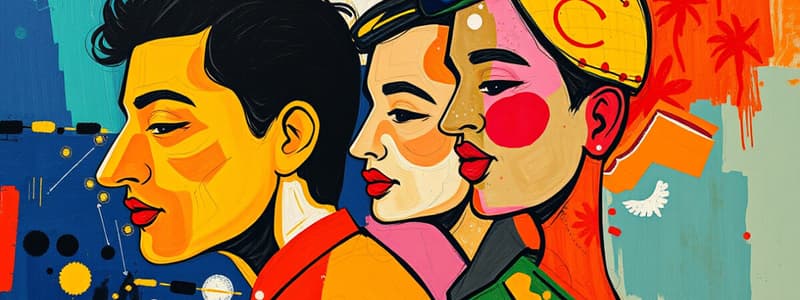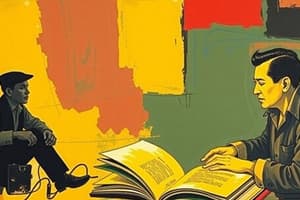Podcast
Questions and Answers
How has technology influenced the interaction and literary expression in the 21st century?
How has technology influenced the interaction and literary expression in the 21st century?
Technology has made communication and socialization more dependent and immediate, leading to a transformation in literary styles, tones, and subjects reflecting contemporary societal needs.
What is the significance of Philippine English in the context of 21st-century literature according to Abad?
What is the significance of Philippine English in the context of 21st-century literature according to Abad?
Philippine English signifies a naturalization of English in Filipino literature, allowing writers to create literary works that resonate with local experiences and identities.
Discuss the continuity of literary values despite the evolution of writing styles and languages.
Discuss the continuity of literary values despite the evolution of writing styles and languages.
Despite changes in writing styles and languages, the fundamental value of literature in expressing and reflecting the human experience remains intact.
What role did historical language play in the development of Philippine literature as stated by Abad?
What role did historical language play in the development of Philippine literature as stated by Abad?
How did the adoption of English as the medium of instruction impact Filipino writers?
How did the adoption of English as the medium of instruction impact Filipino writers?
Flashcards are hidden until you start studying
Study Notes
Changes in Philippine Literature
- The modern generation's reliance on technology has transformed communication and social interaction, influencing literary expression.
- Philippine literature of the 21st century, though still young, is vibrant and continually evolving.
Historical Context
- The literary evolution reflects changes since the times of notable authors like Jose Rizal and Francisco Balagtas, impacting writing styles, tones, languages, and subject matter.
- Literature adapts to contemporary society while retaining its intrinsic value.
Language Developments
- Filipino writers primarily use English in contemporary literature, with a modern contextualization applied.
- The dominance of American English in the Philippine education system has led to a unique blend known as Philippine English, diverging from standard American usage.
National Language and Identity
- English is seen as a national language in the Philippines, emphasizing the need for it to resonate with Filipino experiences and cultural identity.
- Writers advocate for naturalizing English to reflect personal and national historical contexts, enabling a genuine expression of Filipino perspectives.
Contemporary Literary Trends
- Modern Philippine literature is influenced by Western writing yet addresses distinctly Filipino themes, including overseas Filipino workers (OFWs), societal issues, and personal relationships.
- Diverse literary forms have emerged, moving beyond realism to include genres like magic realism, metafiction, minimalism, science fiction, and gothic horror.
Language Use and Cultural Expression
- Contemporary writers engage with English free from colonial guilt and often use a bilingual approach, blending English and Filipino.
- There is an ongoing trend of de-Americanization of English to better serve local subject matters and artistic expression.
Studying That Suits You
Use AI to generate personalized quizzes and flashcards to suit your learning preferences.




